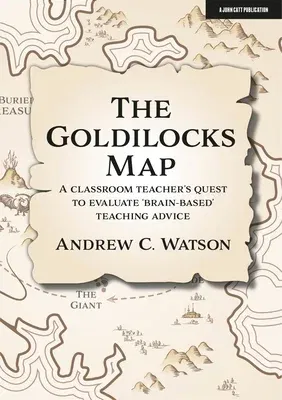Andrew C Watson
(Author)The Goldilocks Map: A Classroom Teacher's Quest to Evaluate 'Brain-Based' Teaching AdvicePaperback, 18 May 2021

Qty
1
Turbo
Ships in 2 - 3 days
Only 3 left
Free Delivery
Cash on Delivery
15 Days
Free Returns
Secure Checkout

Print Length
250 pages
Language
English
Publisher
John Catt Educational
Date Published
18 May 2021
ISBN-10
191362255X
ISBN-13
9781913622558
Description
Product Details
Author:
Book Format:
Paperback
Country of Origin:
US
Date Published:
18 May 2021
Dimensions:
20.83 x
14.73 x
1.78 cm
ISBN-10:
191362255X
ISBN-13:
9781913622558
Language:
English
Pages:
250
Publisher:
Weight:
322.05 gm